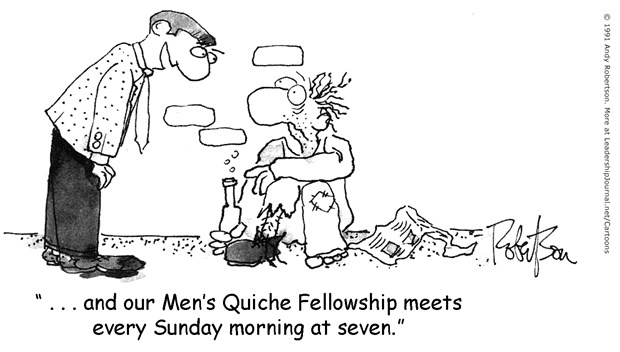The apostle Paul lived in an age when sensuality, the pursuit of
pleasure, and rebellion against the Lord were prevalent. In response, he
wrote letters urging Christians not to follow in the ways of the world.
Like those early believers, we are to pursue godliness by...
- Presenting our bodies to God. Our total being--mind, will, emotions, personality, and physical body--are to be turned over to our heavenly Father (James 4:7a). Submitting ourselves to the Lord requires a definite decision to give Him control and a daily commitment to remain under His authority. By surrendering to Him, we will position ourselves for godly living.
- Becoming living sacrifices. The Christian life is built around the concept of sacrifice. Jesus left the perfection of heaven to dwell among a sinful people so He might reconcile us to God. He offered up His life to make payment for our sins (1 John 3:16) and brought us into His family. As believers, we are to follow His example. Paul called it a living sacrifice, because it is ongoing--one that is repeated daily.
Life is full of options. Many decisions involve a choice between
following God's way or our own. Maturing Christians will increasingly
sacrifice their own desires and embrace His will.
A life of godliness is characterized by a heart and mind bent toward
the things of God. Although we will live imperfectly, our focus is to be
on obeying His will and pleasing Him. Let's commit to becoming more
like Jesus, the One who willingly gave Himself to God as a sacrifice for
us.
from Dr. Charles Stanley
Addressing Real Needs

Today's Bible Verse...
Carry each other's burdens, and in this way you will fulfill the law of Christ. —Galatians 6:2
Thoughts on Today's Verse...
This
is just another way of saying, "Love your neighbor as yourself!" Jesus
came to bear our burdens and carry away the stain and pain of our sin.
(Read Isaiah 53 for a powerful description of God's Suffering Servant, a
passage quoted in the New Testament in reference to Jesus.) He now asks
us to live redemptively, in practical ways, toward those around us.
More than just praying, or asking what we can do to help, we are called
to serve, minister, and assist others who are burdened.
No comments:
Post a Comment